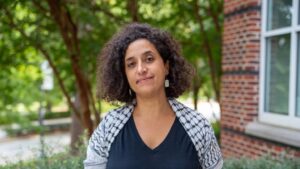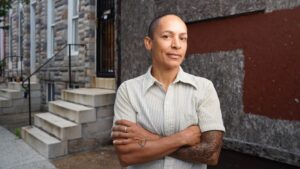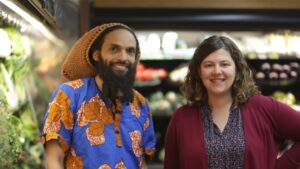Project Overview
The injustices hurled at migrants in America have been widely documented in recent years, but little notice has been given to the language-based violence that underpins the immigration system. Thousands of asylum seekers have no access to a qualified interpreter or translator, while the U.S. government only accepts English asylum materials and can reject asylum claims for a single misspelled word. To help end such nightmares, Respond Crisis Translation has mobilized more than 2,500 language activists who provide trauma-informed interpretation and translation services for migrants, refugees, and anyone experiencing language barriers. A global community of translators—many of whom are asylum seekers as well as deportees rebuilding their lives in their home countries—provides intervention in more than 100 languages, often in contexts where language access is a matter of life and death. Along with translating migrant detention policies into Mam, K’iche’, Popti’, and Haitian Creole, for example, Respond is partnering with 100 organizations to facilitate communication, safety, and success for their clients who may have unique linguistic needs. In the process, the collective creates jobs for high-demand translators in communities that lack economic opportunities. To catalyze change on a system-wide scale, Respond has also launched a grassroots policy effort that uses legal and political advocacy tools to help our society normalize language access and foster language democracy.
Five Questions
Learn more about this project
Meet our other 2021 awardees

North Carolina (Operating nationwide)
Every Campus A Refuge leverages the sizable resources of colleges and universities to provide a stronger, more dignified landing for refugees.

Daniel Bögre Udell &Kristen Tcherneshoff
New York (Operating globally)
Wikitongues safeguards threatened heritage languages by giving people resources to document, teach, and promote culture-sustaining mother tongues.

District of Columbia (Operating nationwide)
Cambium Carbon upcycles fallen urban trees, growing green jobs while building equitable cities and mitigating climate change at scale.

Esperanza Dillard &Talila "TL" Lewis
Nationwide
HEARD’s trauma-informed reentry program provides healing, empathy, and justice for deaf/disabled people who have been harmed by the carceral system.

Maryland
Homeownership and construction skills-building come together as a platform that centers Black women, reclaims historic homes, and sparks neighborhood-scale change.

Ohio
Co-op Dayton builds community- and worker-owned cooperatives that center Black workers, expand democratic participation, and renew long-neglected neighborhoods.

Wisconsin (Operating nationwide)
Driven by a reparations ethic, Nuns & Nones collaborates with Catholic sisters to invest their land and assets in regenerative land stewardship.

Missouri
The Black-led Freedom Community Center holistically integrates restorative justice with personal healing and broad-based advocacy to transform communities.

Forestry and Fire Recruitment Program
California
A promising California model builds a pipeline of needed wildland firefighters by forging career pathways for individuals formerly incarcerated in “Fire Camps.”

 Learn More
Learn More